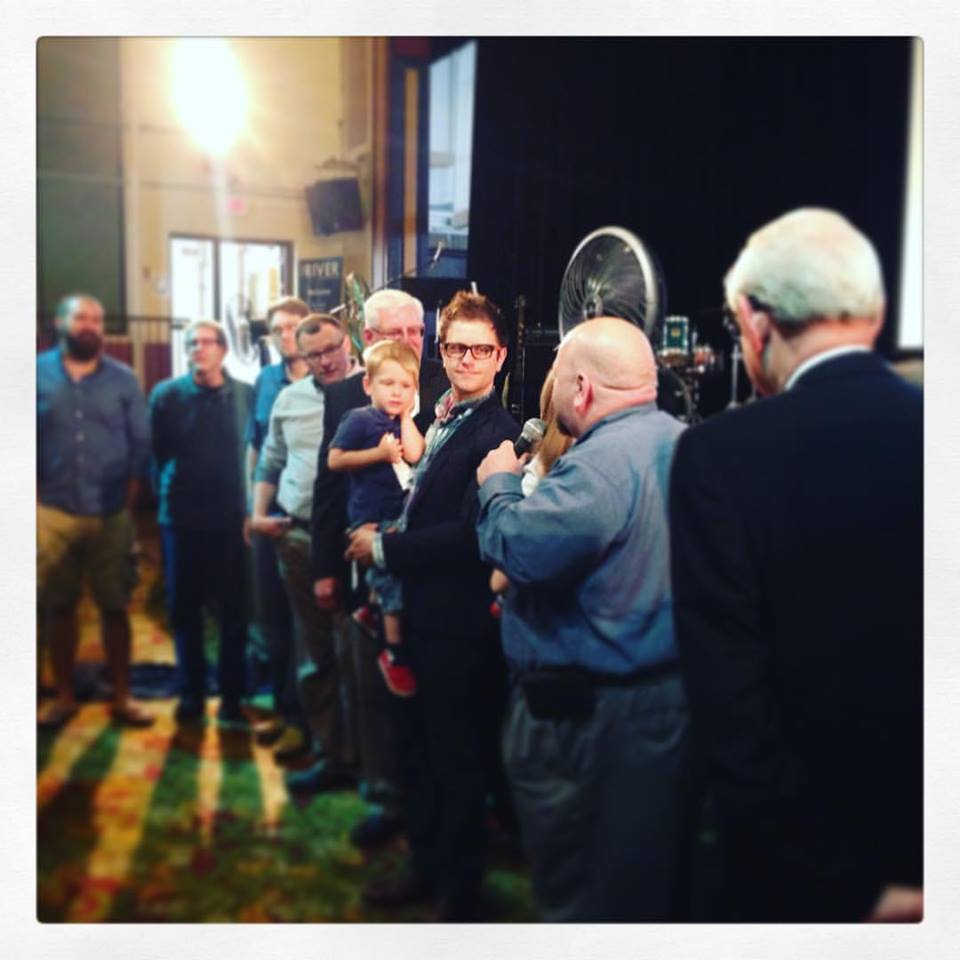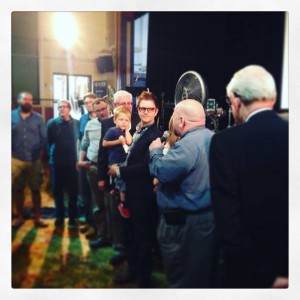Recently there have been several young influential leaders on the modern Christian landscape who have either partially or completely rejected the faith. It is always disheartening to see people become overwhelmed by doubt and pain and respond by turning away from Christ. More concerning then even these examples of rejection are the responses of some people. I have seen people who are crushed because they feel they have lost their “hero” or they see their rejection as a proof that Christianity must not be true. I only point to these recent examples because they have gained so much attention but there are countless examples of leaders who have fallen into sin, heresy, or lost their faith for one reason or another. When this happens it causes us to ask a question, “does the falling away of religious leaders weaken the truth of Christianity?”
A clear answer to this question, “does the falling away of religious leaders weaken the truth of Christianity?” can be found all the way back in the 3rd century in The Prescription Against Heretics written by Tertullian. Although Tertullian had his own theological weaknesses his words ring true concerning our present situation. He wrote, “It is usual, indeed, with persons of a weaker character, to be so built up (in confidence) by certain individuals who are caught by heresy, as to topple over into ruins themselves. How come it to pass, (they ask), that this woman or this man, who are most faithful, the most prudent, and the most approved in the church, have gone to the other side?” Tertullian points out that the reason we are so shaken when religious leaders fall away is because we elevate them in our hearts and our minds and make them examples of what it means to live a “good Christian life”. We see their charisma and their influence. We notice that the church approves of them and declares them champions of the faith. Maybe we even remember ways that they have impacted us personally and helped to define our relationship with God. When they fall away we are baffled and our confidence is weakened. Even in the 3rd century Tertullian recognized this as a common and damaging reaction. He then continues, “If then a bishop or deacon, a widow, a virgin or a teacher, or even a martyr, has lapsed from the Rule of Faith, must we conclude that heresy possesses the truth? Do we test the faith by persons or persons by the faith?” Tertullian answers this question with a question, “Do we test the faith by persons or persons by the faith?” The truth of the Christian faith stands on whether it is true or not. It does not stand on who accepts or denies it. The world was round even before we knew it and germs ravaged our bodies even before we could comprehend their existence. Just imagine the state our world would be in if we judged truth by who accepted it and not by its own veracity. It is heart breaking when people turn away from the faith but their turning does not weaken the truth of Christianity. There are many great men and women in history who have wrestled with the same questions we wrestle with today and have come out on the other side more assured of their faith. We look at modern Christian leaders and aspire to be like them. We follow their teachings and are encouraged by their faith, but our faith does not rest on the popularity of any individual it rests on the truth of the Gospel.
So how can we avoid the becoming distrait the next time a Christian leader falls away? Firstly we need to be rooted in the word of God and have an active prayer life. Sometimes we rely too heavily on Christian leaders in an attempt to make up for deficiencies in our own spiritual life. It can be easier to listen to a sermon or follow a social media feed then it is to study the Bible ourselves or spend time in prayer. Although sermons can be enlightening and social media feeds can be encouraging they are a poor substitution for meditating on God’s life giving word and approaching His throne in prayer.
Secondly, we need to choose different people to look up too. Ultimately our faith rests on no one except Jesus Christ, however the ability to look at mere humans and be encouraged by their devotion to our Savior is an amazing gift. Although the gifts and talents of young leaders should not be ignored and should serve as an encouragement to the Church, these gifts and talents are not the essentials of a life well lived. Paul wrote in 2 Timothy 4:7, “I have fought the good fight, I have finished the race, I have kept the faith.” Paul’s ministry was so great because he lived and died on mission for the kingdom of God. People do not enter the Hall of Fame during their rookie season no matter how spectacular their first appearance was. We should look up to people who have went through the pains of life, wrestled with the tough questions, and at the end of their life can say, “I have fought the good fight, I have finished the race, I have kept the faith.” Instead of being swept off our feet by the new charismatic leader lets be rooted to the truth by the example of men and women like Augustine, Thomas Aquinas, Francis of Assisi, Catherine of Siena, Martin Luther, John Calvin, Mother Teresa, A. W. Tozer, Florence Nightingale, John Wesley, Charlotte Moon, and many others.
So the next time you are discouraged because someone of importance has rejected the faith remember that our faith is built on the firm foundation of truth and we are surrounded by a great cloud of witnesses who have fought the good fight, finished the race, and kept the faith.
Author: Associate Pastor Nathan Phillips



















